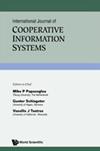基于深度信念网络的用户和实体行为分析(UEBA)
IF 0.8
4区 计算机科学
Q4 COMPUTER SCIENCE, INFORMATION SYSTEMS
International Journal of Cooperative Information Systems
Pub Date : 2023-09-20
DOI:10.1142/s0218843023500168
引用次数: 0
摘要
机器学习(ML)是目前网络安全领域的重要工具。通过识别模式、实时映射网络犯罪以及执行深度渗透测试,机器学习能够应对网络威胁并加强安全基础设施。任何组织的安全性都依赖于对用户操作和行为的监视和分析。由于它经常避免安全预防措施,并且不会触发任何警报或标志,因此检测它比传统的恶意网络活动更具挑战性。机器学习是一个重要且快速发展的异常检测领域,为了保护用户的安全和隐私,包括各种社交媒体平台在内的广泛应用都采用了尖端技术来检测异常。社交网络是一个平台,各种社会群体可以互动,表达自己,并分享相关的内容。通过传播宣传、不受欢迎的信息、虚假信息、假新闻和谣言,以及发布有害链接,这个社交网络也鼓励了越轨行为。在本研究中,我们引入了基于三重DES的深度信念网络(Deep Belief Network, DBN)——一种用于不平衡分类异常检测的混合方法。结果表明,DBN-TDES模型可以典型地检测到其他异常检测模型无法检测到的用户异常行为。本文章由计算机程序翻译,如有差异,请以英文原文为准。
Deep Belief Network-Based User and Entity Behavior Analytics (UEBA) for Web Applications
Machine learning (ML) is currently a crucial tool in the field of cyber security. Through the identification of patterns, the mapping of cybercrime in real time, and the execution of in-depth penetration tests, ML is able to counter cyber threats and strengthen security infrastructure. Security in any organization depends on monitoring and analyzing user actions and behaviors. Due to the fact that it frequently avoids security precautions and does not trigger any alerts or flags, it is much more challenging to detect than traditional malicious network activity. ML is an important and rapidly developing anomaly detection field in order to protect user security and privacy, a wide range of applications, including various social media platforms, have incorporated cutting-edge techniques to detect anomalies. A social network is a platform where various social groups can interact, express themselves, and share pertinent content. By spreading propaganda, unwelcome messages, false information, fake news, and rumours, as well as by posting harmful links, this social network also encourages deviant behavior. In this research, we introduce Deep Belief Network (DBN) with Triple DES, a hybrid approach to anomaly detection in unbalanced classification. The results show that the DBN-TDES model can typically detect anomalous user behaviors that other models in anomaly detection cannot.
求助全文
通过发布文献求助,成功后即可免费获取论文全文。
去求助
来源期刊

International Journal of Cooperative Information Systems
工程技术-计算机:信息系统
CiteScore
2.30
自引率
0.00%
发文量
8
审稿时长
>12 weeks
期刊介绍:
The paradigm for the next generation of information systems (ISs) will involve large numbers of ISs distributed over large, complex computer/communication networks. Such ISs will manage or have access to large amounts of information and computing services and will interoperate as required. These support individual or collaborative human work. Communication among component systems will be done using protocols that range from conventional ones to those based on distributed AI. We call such next generation ISs Cooperative Information Systems (CIS).
The International Journal of Cooperative Information Systems (IJCIS) addresses the intricacies of cooperative work in the framework of distributed interoperable information systems. It provides a forum for the presentation and dissemination of research covering all aspects of CIS design, requirements, functionality, implementation, deployment, and evolution.
 求助内容:
求助内容: 应助结果提醒方式:
应助结果提醒方式:


